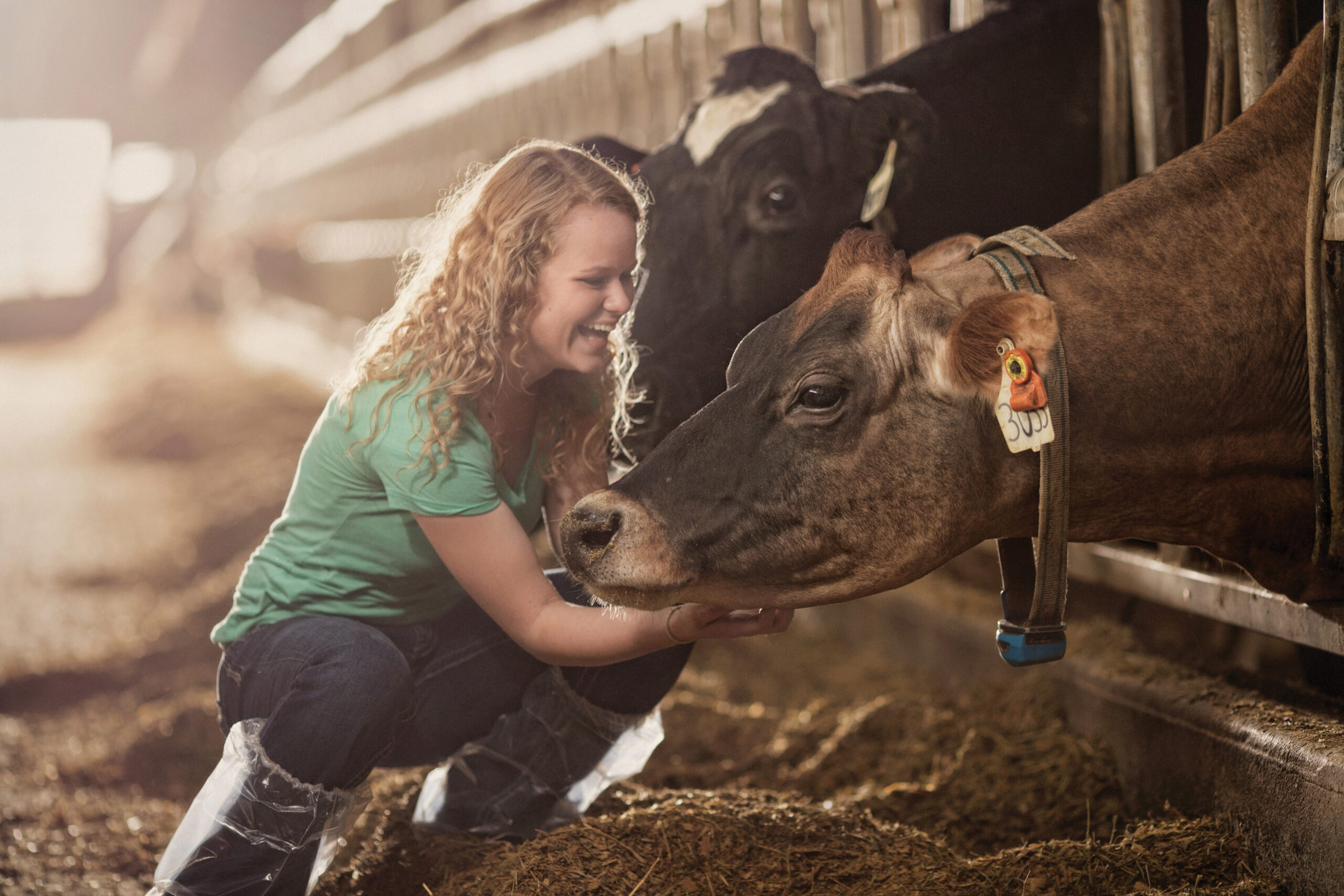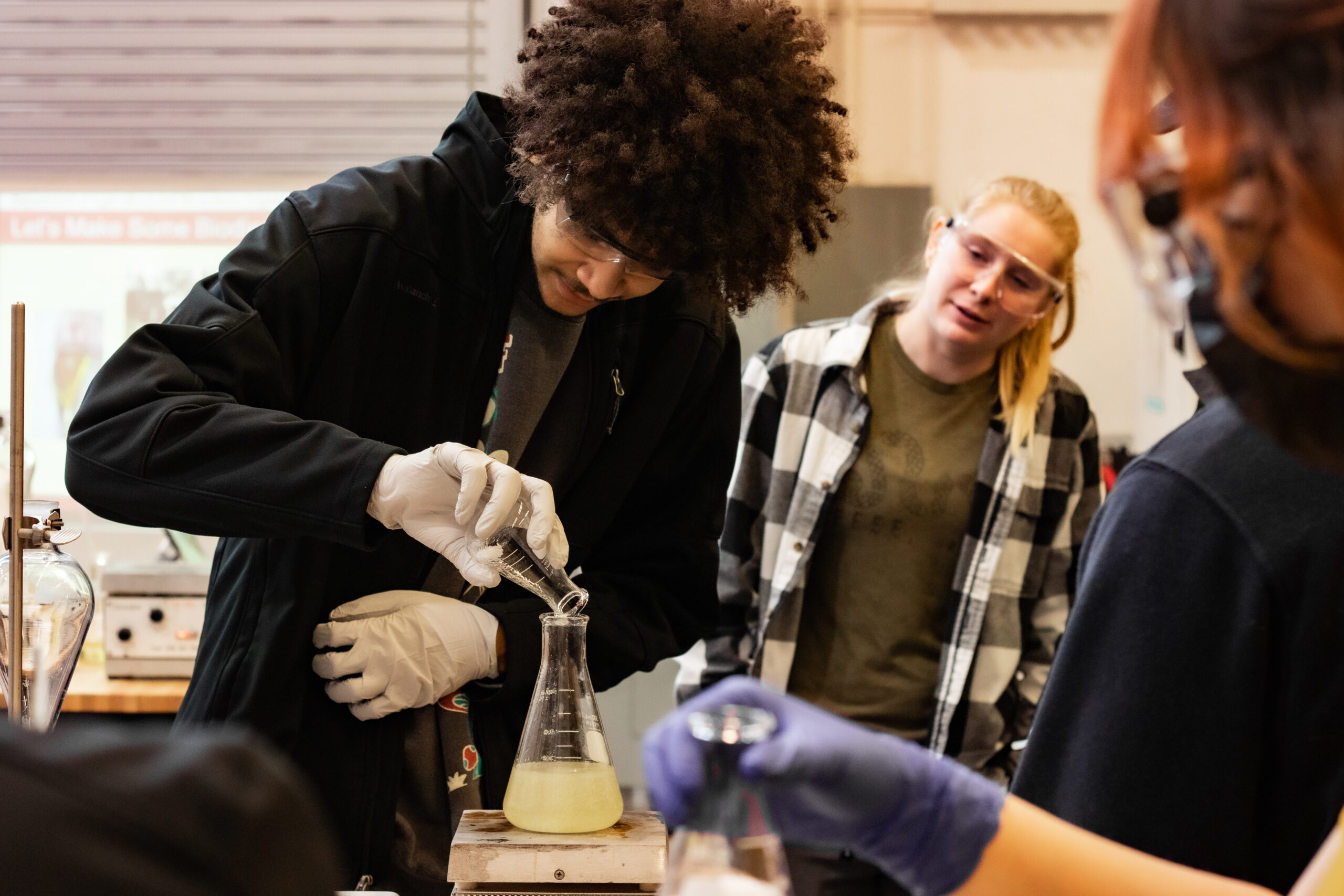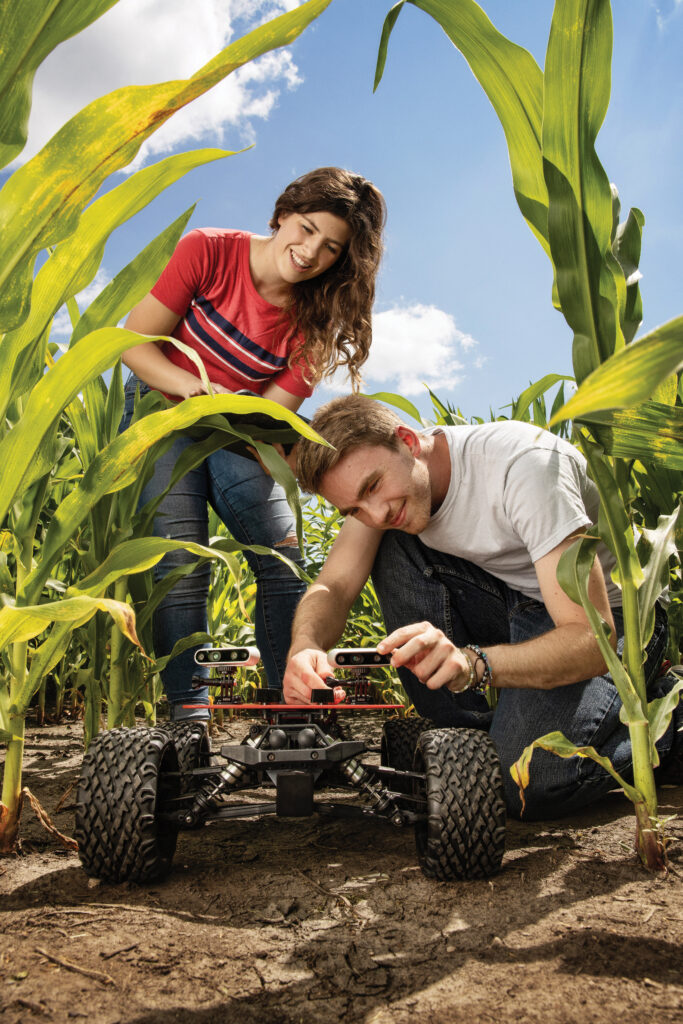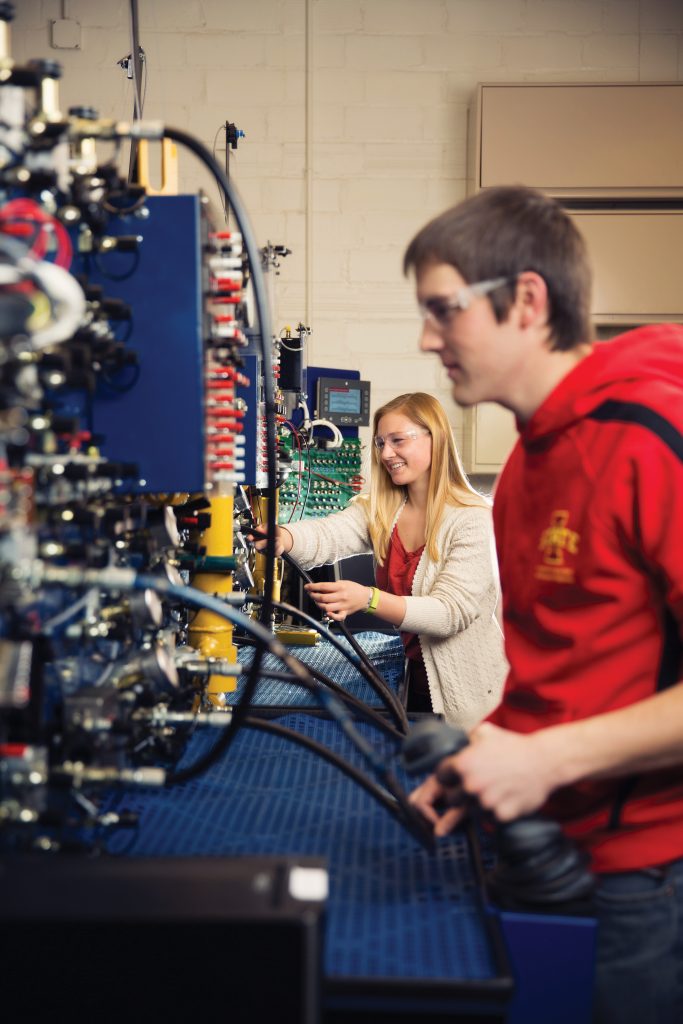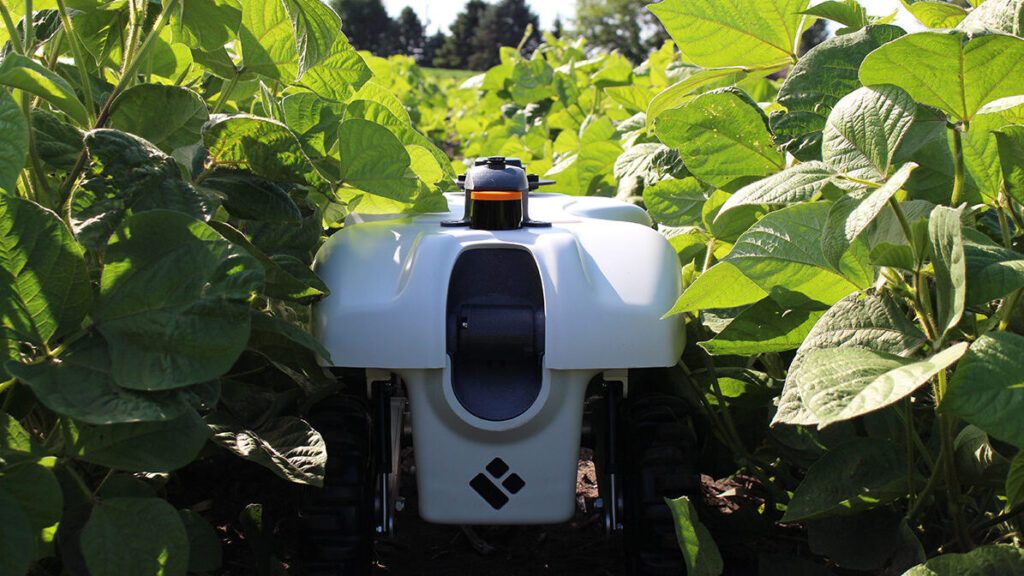Your Path In The Making
Whatever your goals, your success is important to us! Our programs, labs, hands-on learning environments and facilities will give you a competitive advantage.
Personal attention: Our department is small enough for you to have personal attention from faculty, but large enough to choose a variety of educational opportunities. The student-to-faculty ratio is 25:1. Average class size is 15 to 30 students, and the average lab size is about 16 students working in teams of 2 to 4.
Learning communities: We have created a strong academic environment for new students with our living/learning community. Join a learning community and have a common schedule of classes, peer mentors, career exploration opportunities and the option of living on a floor with other students in your major.
Labs: In class, you will use the same equipment used in professional practice. In fact, several companies donate lab equipment to help you learn. Some of our unique labs include the Ag Leader Precision Agriculture Lab, Danfoss Fluid Power Lab, John Deere Diesel Engines Lab, Buss Hydrology Lab, Iowa Pork Producers Association and Air Dispersion Lab, Electricity and Electronics Lab, and Water Quality Lab.
Core Curriculum:
Agricultural engineering’s core curriculum is designed to provide you with a foundation for any of our major areas so you can choose the best option.These include:
• Land and water resources engineering: Learn and analyze agricultural best management practices that protect and conserve soil and water resources locally and globally.
• Power and machinery engineering: Create and improve the next generation of off-road vehicles, agricultural equipment and control systems.
• Animal production systems engineering: Ensure sustainable livestock and poultry industries by improving air quality, animal welfare, animal housing and environment, and animal manure and nutrient management.


